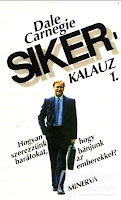The study dedicated to the feeling of perfection, based on the psychology of the life’s joy was written in 1991, by the American writer with Hungarian origins. Csíkszentmihályi is a noble pursuer of the positive psychological school, founded by Hans Selye in the 1950’s.
What’s the secret of the book’s unrivalled success? It deals with the ancient dilemma of whether work activities can be really enjoyable, whether it’s possible for a person to enjoy duties, and lastly it explores whether this joy is dependent on other external circumstances such as material preconditions.
 Since Aristotle human kind wants to define the secret of happiness, but the question has been left unanswered despite technological developments and increasing social prosperity.Csíkszentmihályi’s research that spanned a quarter of a century concluded that the joy of life, in other words, the root to happiness cannot be found externally, but must be sought inside, within ourselves. Those who are receptive to the ability of flow, who possess the power of concentration in their mind are capable of maintaining their mental self-control even in exceptional circumstances.
Since Aristotle human kind wants to define the secret of happiness, but the question has been left unanswered despite technological developments and increasing social prosperity.Csíkszentmihályi’s research that spanned a quarter of a century concluded that the joy of life, in other words, the root to happiness cannot be found externally, but must be sought inside, within ourselves. Those who are receptive to the ability of flow, who possess the power of concentration in their mind are capable of maintaining their mental self-control even in exceptional circumstances.
A wonderful example of mental survival is István Papp’s case, a civil employee of NATO, who was freed from Sudanese imprisonment in January. His secret must lie in his powers over his conscious, which enabled him to retain his internal poise and sanity, despite being kept hostage in poor undermining conditions, like „a chained dog”.
We tend to attribute and blame the external circumstances for our unhappiness and emptiness of our lives. But should we assign it to the unfriendliness of the world and helplessly suffer our destiny?
Nevertheless, unfriendliness in the world is not bound to this century only!
What can we do to ensure that our children are able to experience the joy of flow and face the challenges of life? Csíkszentmihályi suggests five base conditions, to ensure that our children will be happy and satisfied throughout their lives – and these have almost nothing to do with being wealthy!
If we bring our children up with clear expectations, let them bask in the light of our attention, assuring security, raising them in an atmosphere of acceptance, and we give them the power of choice, allowing them to explore their own path, then we have created ideal surroundings for the child to become a happy adult – as Csikszentmihályi says.




